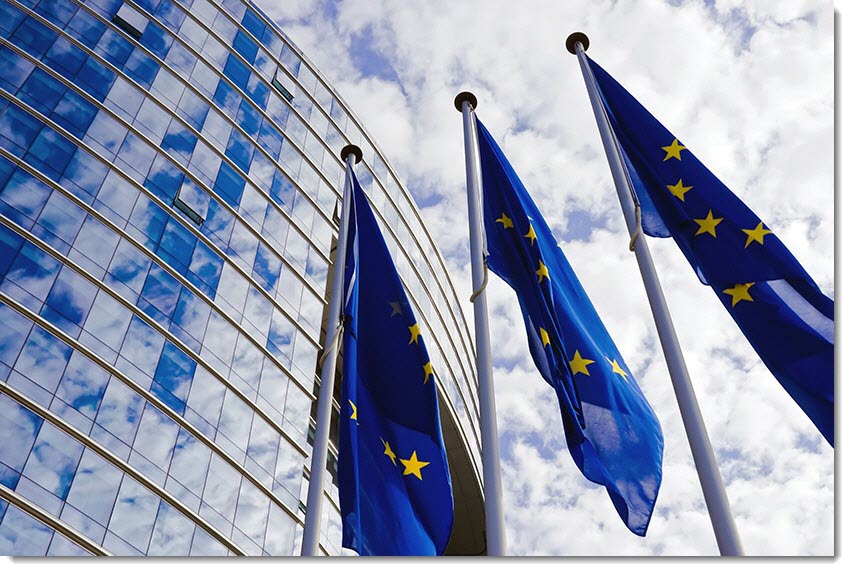
06/05/2024
EU Insight, 3 May 2024
Brussels, 3 May 2024
EU-NEW ZEALAND TRADE AGREEMENT ENTERS INTO FORCE
The recently ratified EU-New Zealand free trade agreement entered into force this week. Overall, the deal aims to boost trade between the two jurisdictions while safeguarding sensitive sectors through limited quota imports, open service markets, and enhanced protections for intellectual property. Additionally, the deal aims to safeguard sustainability commitments, ensuring compliance with the Paris Climate Agreement and core labour and social rights. Concretely, the deal is anticipated to cut €140 million annually in duties for EU companies, thus resulting in trade with New Zealand rising by up to 30% within a decade. The deal is also expected to facilitate and foster EU investment in New Zealand, which is projected to rise by 80%.
EU EASTERN EXPANSION TURNS 20 YEARS OLD
This week marked the 20th anniversary of the EU’s largest membership enlargement to date. In 2004 ten new Member States joined the EU, significantly expanding the Union eastward. Back then, said expansion marked a significant step in the EU’s opening towards Eastern Europe with a large intake of democratised former communist countries. While continuing until 2013 with the addition of three further members, the EU’s enlargement momentum which peaked in 2004, had since then practically disappeared. However, with war raging at the EU’s doorstep enlargement has come back top of the EU’s agenda and alongside it debates about the strategic implications an expanded Union would have on peace, security, and prosperity in the region, as well as the functioning of the EU itself.
EU AND INTERNATIONAL BODY RECOGNISE INTEROPERABILITY ACROSS SUSTAINABILITY STANDARDS
The European advisory group in charge of developing the EU’s corporate sustainability reporting standards, and its international standard setting counterpart, endorsed an interoperability map between the two sets of standards. For context, with the EU having adopted its own set of sustainability reporting standards, businesses feared the creation of excessive burden should they also wish to report under the international standards for global recognition. For that purpose, the map is meant to serve as guidance to allow companies’ reporting under either set of standards to be recognised by elements of the other, thus avoiding unnecessary double reporting. Notably however, given the EU’s stricter stance, compliance with international standards does not imply compliance with the EU’s reporting requirements.
EU BOLSTERS DIGITAL AND ECONOMIC COOPERATION WITH JAPAN
During the 5th EU-Japan High-Level Economic Dialogue, Trade Commissioner Valdis Dombrovskis and his Japanese counterparts reaffirmed the EU and Japan’s shared commitment to cooperating in fostering digital innovation and economic stability in both jurisdictions, while establishing a Transparent, Resilient, and Sustainable Supply Chains Initiative. Notably, the Dialogue welcomed the recent formal adoption of the EU-Japan free data flow protocol, which aims to establish a predictable legal framework for cross-border data exchanges while respecting data protection rules. In a similar vein the Dialogue was preceded by the second EU-Japan Digital Partnership Council, where the two jurisdictions signed a Memorandum of Cooperation on digital identities and trust services and enhanced their partnership on semiconductor and AI research.
EU ELECTIONS LEAD CANDIDATES FACE OFF IN FIRST DEBATE OF THE CAMPAIGN
Commission President Ursula von der Leyen faced her rival leading candidates in the first debate of the EU elections campaign. Overall, across policy issues ranging from climate change to security and defence, the incumbent president successfully defended her Commission’s track record and solidified her position as the likeliest candidate to lead the next Commission. On the other hand, her main competitor, socialist Nicolas Schmit lacked any serious presence on stage, while the liberal candidate Marie-Agnes Strack-Zimmermann struggled to convey her ideas in English. Similar to Von der Leyen, the Green candidate Bas Eickhout came out triumphant from the evening, although given the debate was held in front of a student crowd and in light of recent polling, said triumph may have been rather deceiving. Lastly, while the far-right candidate, Anders Vistisen, was an easy target for all those present, his display may merely reinforce his group’s position in their voter’s eyes as an alternative to the establishment.
COMING UP NEXT WEEK
- 7 May: Employment, Social Policy, Health and Consumer Affairs Council. On the agenda: equality, economic empowerment and independence women in public life.
- 7 May: Foreign Affairs Council. On the agenda: Ukraine and Palestine
- 9 May: Europe Day
Karl Isaksson, Managing Partner Brussels, Kreab
Kreab • Tel: +32 2 737 6900 • karl.isaksson@kreab.com • www.kreab.com/brussels • X: @KreabEU • LinkedIn: Kreab Worldwide
